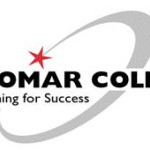- Branża: Education
- Number of terms: 12355
- Number of blossaries: 0
- Company Profile:
Founded in 1946, Palomar College is a public two-year community college in the city of San Marcos, located in north San Diego County, California. Palomar offers over 300 associate degree, certificate programs and is designated by the U.S. Department of Education as an Hispanic-Serving Institution ...
The Old World is Europe, Asia, and Africa. The New World is the Americas. This distinction is an ethnocentric reflection of the European origin of our modern sciences.
Industry:Anthropology
The original name given by Eugene Dubois to the Homo erectus skeletal remains from Java. Literally, Pithecanthropus erectus means "ape-man who stands erect. " This scientific designation is no longer in use.
Industry:Anthropology
The male sex spores of flowering plants. Pollen particles are usually nearly invisible, except in large concentrations, due to their extremely small size. They can survive for hundreds of thousands of years in silty, anaerobic soils, such as mud sediments at the bottom of a lake. When excavated from early human sites, they can be used to reconstruct what the climate was like at the time of the occupations as well as relatively date them.
Industry:Anthropology
The mating of closely related individuals, such as brothers, sisters, or cousins. This is an extreme form of positive assortative mating.
Industry:Anthropology
The mating of closely related individuals, such as brothers, sisters, or cousins. This is an extreme form of positive assortative mating.
Industry:Anthropology
The outer portion of a brain's cerebrum. This is the area associated with coordination of sensory and motor information as well as higher thought processes.
Industry:Anthropology
The part of the Paleolithic stage of development in which the Mousterian tool tradition of the Neandertals and early modern humans was used. The Middle Paleolithic began about 75,000 years ago and continued until at least 28,000 years ago.
Industry:Anthropology
The pattern of human evolution in which the effects of natural selection are altered by cultural inventions. Culture can alter the direction of evolution by creating non-biological adaptations to environmental stresses (e. G. , wearing insulating clothes on very cold days). This potentially reduces the need to evolve genetic responses to the stresses. This has meant that we have been able to remain essentially tropical animals biologically and live in colder regions of our planet. Biocultural evolution can also involve a mutual, interactive evolution of human biology and culture. An example of this has been the selection favoring sickle-cell trait in Africa. Human agricultural practices altered the environment, which resulted in factors that were advantageous to both the malarial microorganisms and the mosquitoes that transmit them between people. This, in turn, selected for the sickling allele.
Industry:Anthropology
The pattern of non-branching evolution that results from successive speciation in a single evolutionary line.
Industry:Anthropology
